Publications
Articles, publications, books, tools and multimedia features from the U.S. Institute of Peace provide the latest news, analysis, research findings, practitioner guides and reports, all related to the conflict zones and issues that are at the center of the Institute’s work to prevent and reduce violent conflict.
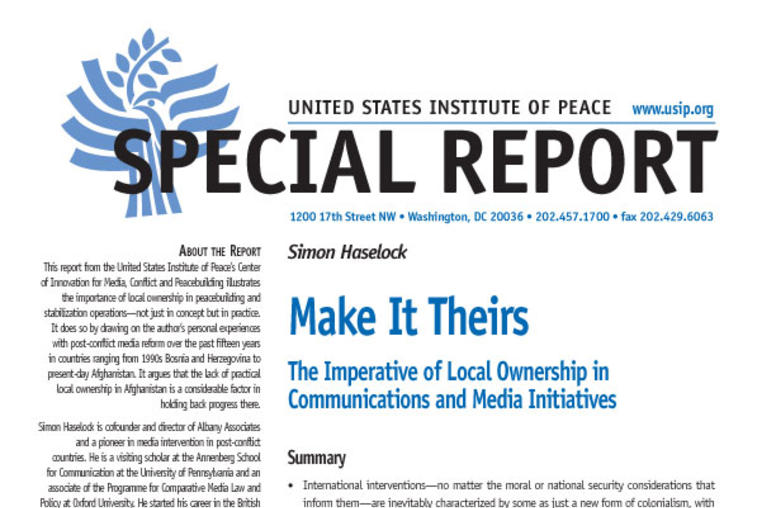
Make It Theirs
This report from the United States Institute of Peace’s Center of Innovation for Media, Conflict and Peacebuilding illustrates the importance of local ownership in peacebuilding and stabilization operations—not just in concept but in practice.
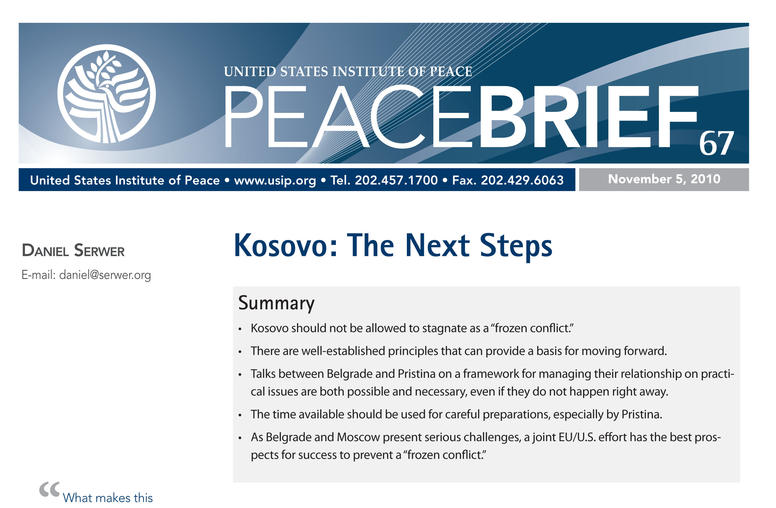
Kosovo: The Next Steps
A small group of experienced American Balkans hands met in October at the United States Institute of Peace in Washington, D.C. to discuss the situation and the way forward. This Peace Brief summarizes salient points from their discussion.
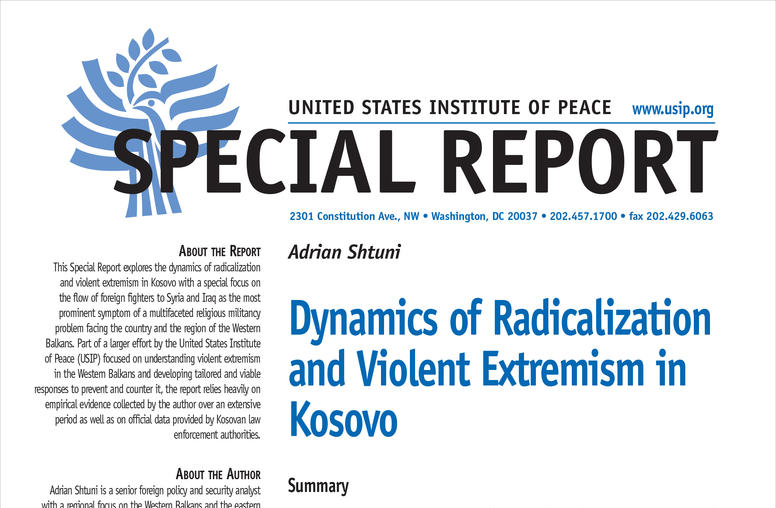
Dynamics of Radicalization and Violent Extremism in Kosovo
Relying in large part on primary empirical evidence, this report explores the dynamics of violent extremism in Kosovo and the disproportionately high number of radicalized fighters from the region in Syria and Iraq. Examining the historic, cultural, geopolitical, and socioeconomic factors behind the phenomenon, it focuses on the flow as a symptom of a larger religious militancy problem within the country and offers recommendations on countering that challenge.
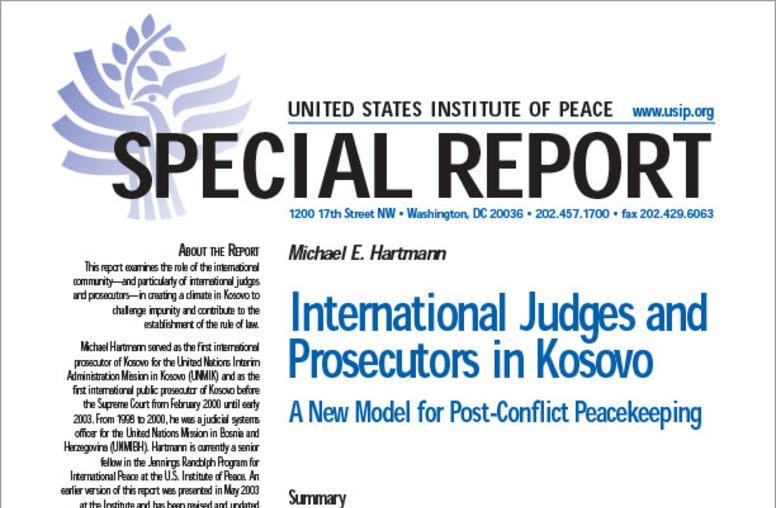
International Judges and Prosecutors in Kosovo: A New Model for Post-Conflict Peacekeeping
This report examines the role of the international community—and particularly of international judges and prosecutors—in creating a climate in Kosovo to challenge impunity and contribute to the establishment of the rule of law.
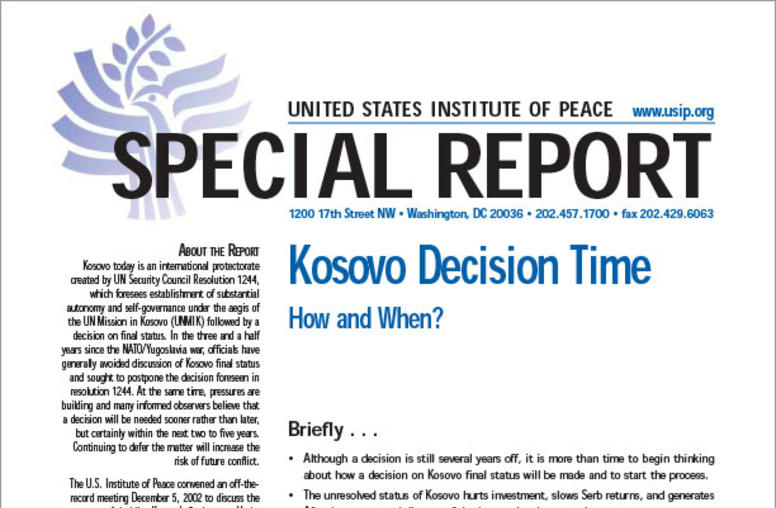
Kosovo Decision Time: How and When?
Kosovo today is an international protectorate created by UN Security Council Resolution 1244, which foresees establishment of substantial autonomy and self-governance under the aegis of the UN Mission in Kosovo (UNMIK) followed by a decision on final status. In the three and a half years since the NATO/Yugoslavia war, officials have generally avoided discussion of Kosovo final status and sought to postpone the decision foreseen in resolution 1244. At the same time, pressures are building and ...
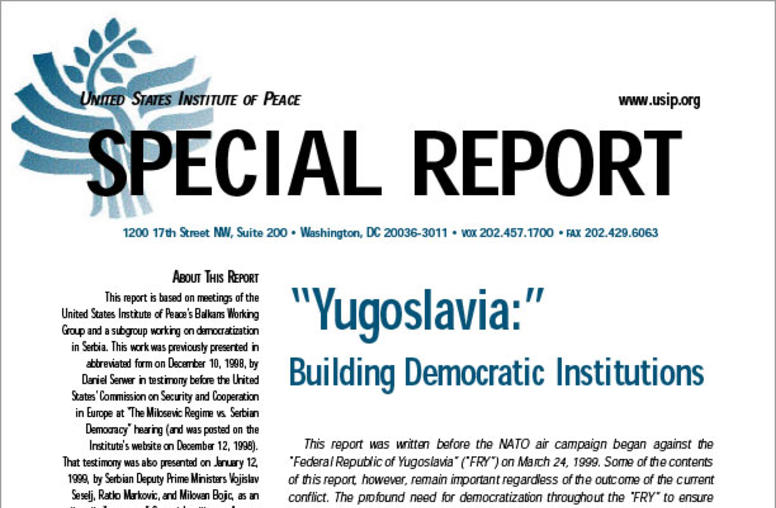
"Yugoslavia": Building Democratic Institutions
This report was written before the NATO air campaign began against the "Federal Republic of Yugoslavia" ("FRY") on March 24, 1999. Some of the contents of this report, however, remain important regardless of the outcome of the current conflict. The profound need for democratization throughout the "FRY" to ensure long-term stability in the region has been made clearer in these past few weeks. Summary The possibility of finding solutions to the "Federal Republic of Yugoslavia's" long...
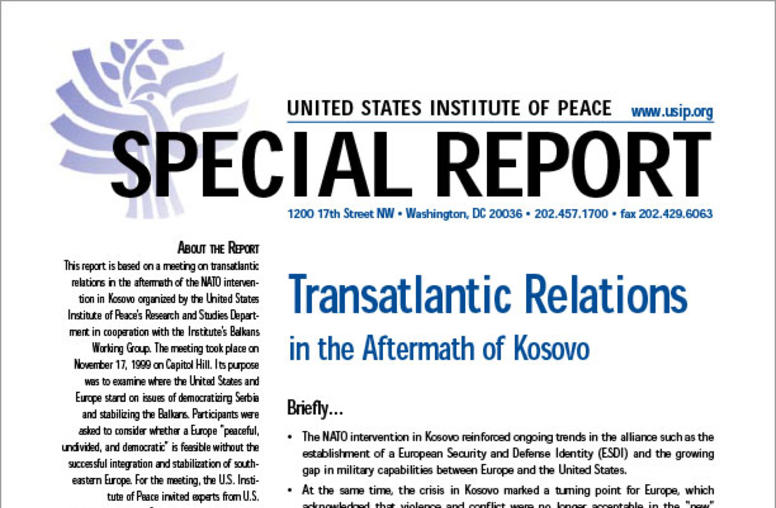
Transatlantic Relations In the Aftermath of Kosovo
Summary The NATO intervention in Kosovo reinforced ongoing trends in the alliance such as the establishment of a European Security and Defense Identity (ESDI) and the growing gap in military capabilities between Europe and the United States. At the same time, the crisis in Kosovo marked a turning point for Europe, which acknowledged that violence and conflict were no longer acceptable in the "new" Europe--even on its periphery.
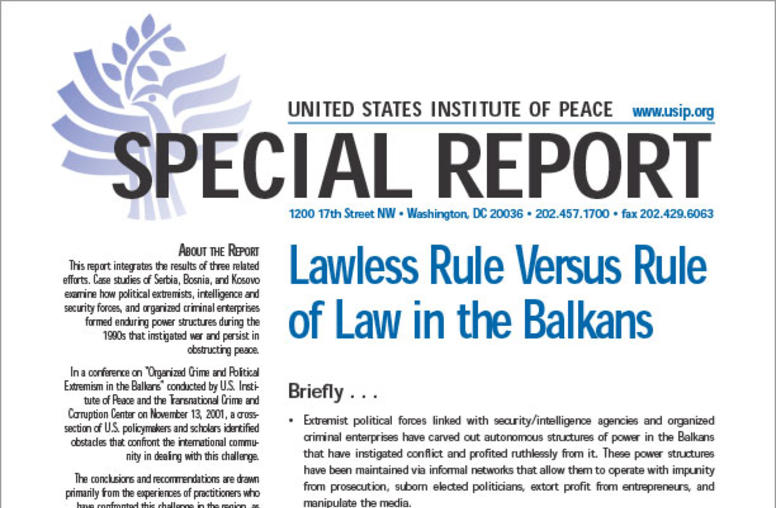
Lawless Rule Versus Rule of Law in the Balkans
This report integrates the results of three related efforts. Case studies of Serbia, Bosnia, and Kosovo examine how political extremists, intelligence and security forces, and organized criminal enterprises formed enduring power structures during the 1990s that instigated war and persist in obstructing peace.
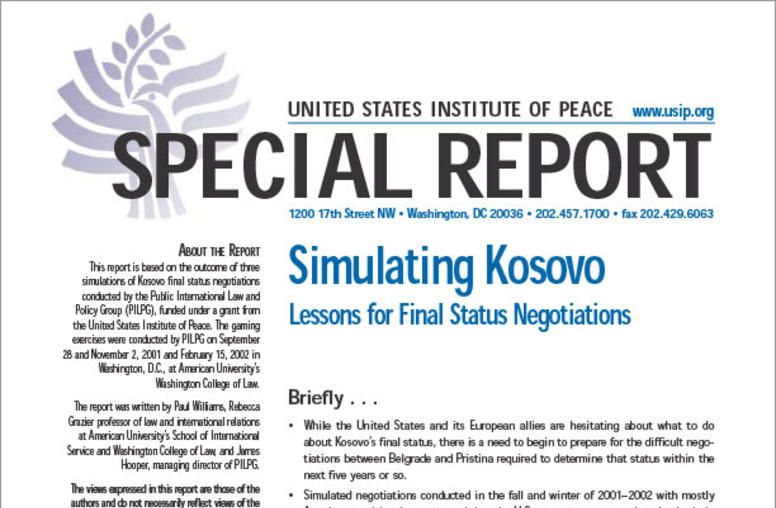
Simulating Kosovo: Lessons for Final Status Negotiations
This report is based on the outcome of three simulations of Kosovo final status negotiations conducted by the Public International Law and Policy Group (PILPG).
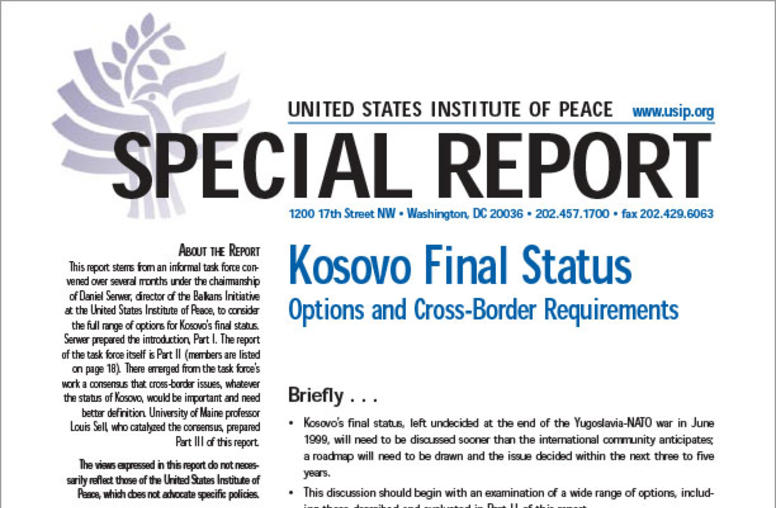
Kosovo Final Status: Options and Cross-Border Requirements
Summary Kosovo's final status, left undecided at the end of the Yugoslavia-NATO war in June 1999, will need to be discussed sooner than the international community anticipates; a roadmap will need to be drawn and the issue decided within the next three to five years. This discussion should begin with an examination of a wide range of options, including those described and evaluated in Part II of this report.